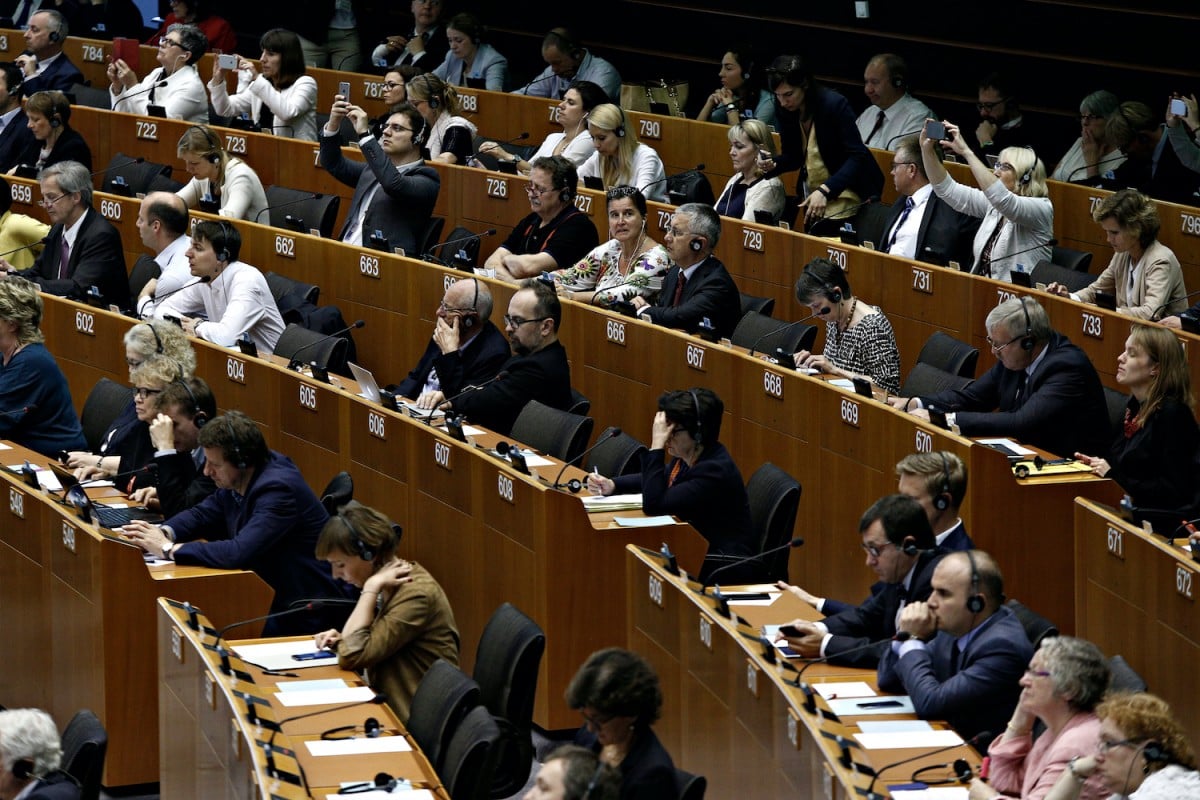Europe’s proposed “veggie ban” contradicts EU sustainability goals and defies consumers

From veggie steaks to oat yogurt, Europeans have been enjoying plant-based meat and dairy for decades. But next week, the European Parliament will vote on a plan to ban the plant-based sector from using the everyday language people use to describe these foods.
If it passes, the booming plant-based protein sector in the European Union (EU) could be forced to rename their burgers and sausages with bizarre terms like “meat-free discs” and “plant-based tubes.” But GFI Europe is teaming up with international nonprofits, leading businesses, and thousands of consumers across the continent to stand up for clear and honest labels.
Last week, GFI Europe coordinated a group of 13 environmental, animal welfare, and consumer organizations to call on Members of the European Parliament (MEPs) to reject these damaging and unnecessary proposals.
Together, we wrote to all 705 MEPs to point out that this “veggie ban” directly contradicts Europe’s environmental ambitions, and also defies the wishes of consumers.
Alternative proteins are essential for building a sustainable food system.
Earlier this year, the EU’s Farm to Fork strategy for building a sustainable food system recognized the need to move towards more plant-based diets in an effort to “reduce not only risks of life threatening diseases, but also the environmental impact of the food system.”
The European Green Deal—the European Commission’s Flagship Policy Strategy designed to make the EU climate neutral by 2050—includes an objective to create a more sustainable and healthy food system.
And just last week, the European Parliament voted in favor of a new climate law to reduce the bloc’s greenhouse gas emissions by 60 percent by 2030.
Agriculture is responsible for 10.3 percent of the EU’s greenhouse gas emissions and nearly 70 percent of those come from the animal sector. Studies show that moving toward plant-based meat would reduce emissions by 30 to 90 percent. Muzzling the plant-based proteins with the potential to tackle climate change, prevent further biodiversity loss, and reduce pressures on land and water would severely undermine Europe’s sustainability plans.
Consumers clearly understand plant-based food labels.
Those advocating for the restrictions—which, in addition to blocking “meaty” labels for plant-based bacon and sausages, would also ban terms like “yogurt style,” “alternative to cheese,” and “butter substitute” from plant-based dairy alternatives’ labels—claim the status quo is confusing. But there’s no evidence to suggest consumers are struggling to decipher the difference between plant-based steaks and beef steaks—just as they’re perfectly able to distinguish peanut butter from dairy butter.
In fact, a recent survey conducted by the European Consumer Organisation (BEUC) in 10 EU countries found that more than 68 percent of consumers support names such as burger and steak for plant-based food, as long as the products are clearly labeled as plant-based or vegetarian. And over 140,000 people have already signed a petition against the proposed restrictions.
This plant-based labeling restriction is damaging and unnecessary.
Meanwhile, the European public’s appetite for plant-based protein continues to grow. According to the European Commission, the markets for meat and dairy alternatives are experiencing annual growth rates of 14 percent and 11 percent, respectively.
People aren’t buying plant-based meat by mistake. They’re buying it because they recognize the benefits of these products for their health, the environment, and animal welfare.
Leading food companies like Unilever are joining European startups like Heura Foods and Oatly in launching exciting new plant-based products, and they, too, are joining us to stand up against these damaging, restrictive labeling proposals.
The Good Food Institute has stood up to efforts to censor and undermine plant-based protein producers in the United States. Now we’re working to protect common-sense labeling in Europe.
When it comes to the vote next week, MEPs must listen to voters, stand by their climate commitments, and stand up for plant-based foods by rejecting the veggie bans.

